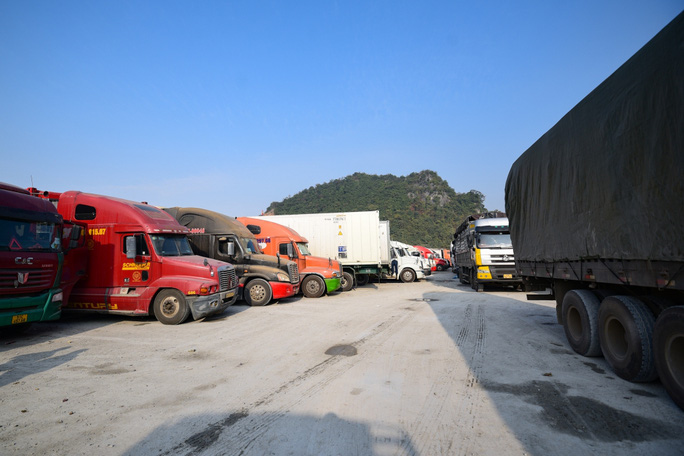HCMC – Pingxiang Customs in China announced that it has temporarily suspended conducting customs clearance procedures for dragon fruits imported from Vietnam from December 29 to January 26 due to the complicated developments of Covid-19.
Local exporters of agro products received the news after a huge volume of Vietnamese goods had been stuck at the northern border gates. After the period mentioned above, the Chinese side would resume the imports of the fruit, the local media reported.
As of yesterday, December 29, the total number of container trucks stranded at the three northern border gates of Huu Nghi, Tan Thanh and Chi Ma had reached 3,530, according to the authorities of Lang Son Province.
The management board of the Dong Dang-Lang Son border gate economic zone has contacted its counterpart in Pingxiang to work on the suspension of customs clearance for Vietnamese dragon fruits.
Over the past weeks, a host of Vietnamese agro products such as dragon fruits, jackfruits, mangoes and bananas have been stuck at the border gates in Lang Son, waiting for customs clearance to be shipped to China. As China tightens measures against Covid-19, the customs clearance capacity at the border gates remains limited.
Only the Huu Nghi Border Gate remains open for vehicles transporting Vietnam’s exports to China, with a capacity of around 100 vehicles per day. Meanwhile, custom clearance at the Tan Thanh and Chi Ma border gates remains suspended.
Further, as of December 29, up to 1,564 vehicles were stranded at the Tan Thanh Border Gate.
To remove obstacles linked to cargo congestion at the border gates and support affected businesses, the General Department of Vietnam Customs required the customs agencies in the northern localities such as Lang Son, Cao Bang, Lao Cai and Ha Giang to work with businesses whose exports are stuck at the border gates and bonded warehouse owners to clarify their demand to store the cargo at the bonded warehouses while waiting for customs clearance.
Earlier, the provincial government of Lang Son had reduced service and parking fees to support drivers and enterprises impacted by the cargo congestion.









